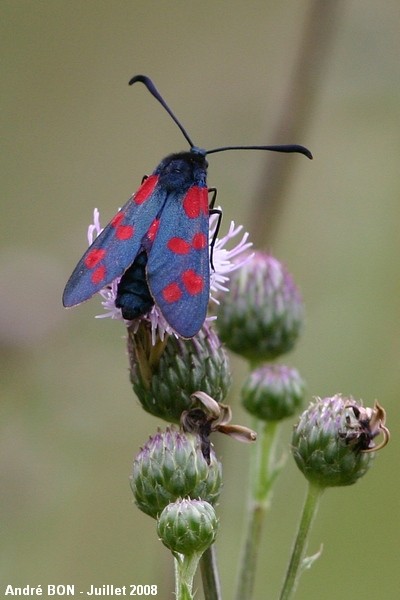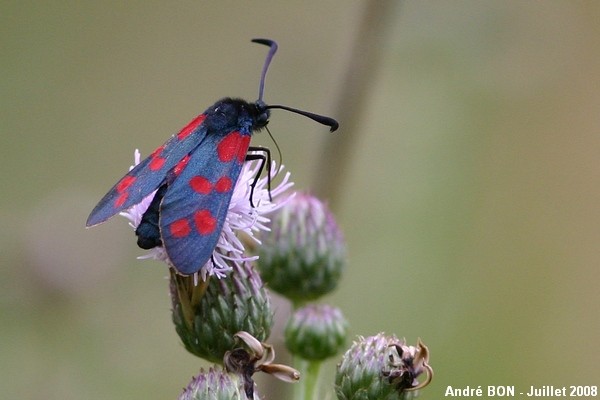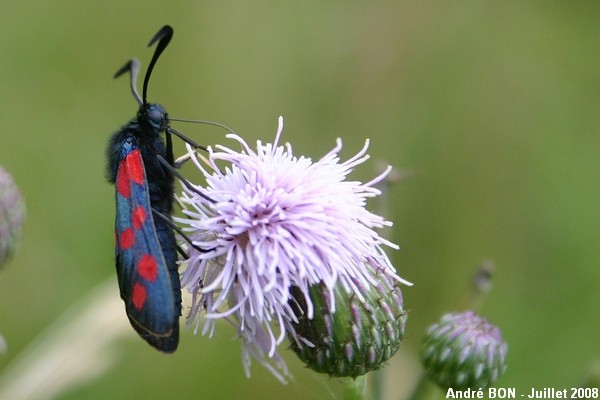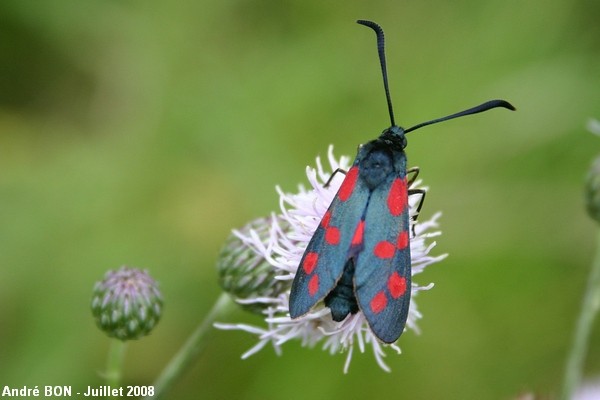



| Six-spot Burnet (Zygaena filipendulae (Linnaeus, 1758)) |




|
|
Scientific name: Zygaena filipendulae (Linnaeus, 1758) Common name: Six-spot Burnet French name: Zygène de la filipendule, Zygène de la spirée Order: Lepidoptera Suborder: Heterocera Family: Zygaenidae Subfamily: Zygaeninae Wingspan: 35 mm. Biotope: Meadows, woodland clearings, track sides, fallow lands and gardens. Geographic area: Europe, missing in Portugal and south-western Spain. Flight time: June to August. Number of generations : 1 Caterpillar: Pale green with several black marks on each segment. These marks make interrupted longitudinal lines on the back and on the sides. Host plant: Leguminous plants like Bird's-foot trefoil (Lotus corniculatus), Kidney vetch (Anthyllis vulneraria), Common Speedwell (Veronica officinalis) and Meadow-sweet (Spiraea filipendula). |
The forewings of the Six-spot Burnet are a greyish-blue or dark green colour. There are six red spots, grouped by pairs and clearly visible. Spot number 6, the closest to the apex of the wing, is sometimes a reduced size or even missing. The spots are clearly visible and well separated on the underside of the fore wings. The hind wings are red with a thin greyish outer border. There is no red ring on the abdomen. The tip of the antennae is black. Both sexes are similar. The Six-spot Burnet overwinters as a caterpillar. The Southern Six-spot Burnet (Zygaena transalpina) also shows six well separated red spots. You can tell it apart with the whitish tip of the antennae or with the underside of the fore wings whose red colour covers and hides all the spots. |
| [To know more about the Six-spot Burnet] [Next picture] [Top] |

|
Six-spot Burnet on Thistle. |
| [To know more about the Six-spot Burnet] [Next picture] [Previous picture] [Top] |

|
This Six-spot Burnet has been very cooperative during the photo session. |
| [To know more about the Six-spot Burnet] [Next picture] [Previous picture] [Top] |

|
One side view to change from above. |
| [To know more about the Six-spot Burnet] [Previous picture] [Top] |

|
I am just waiting for other Zygaenidae species to show up … Result: June 2011 |